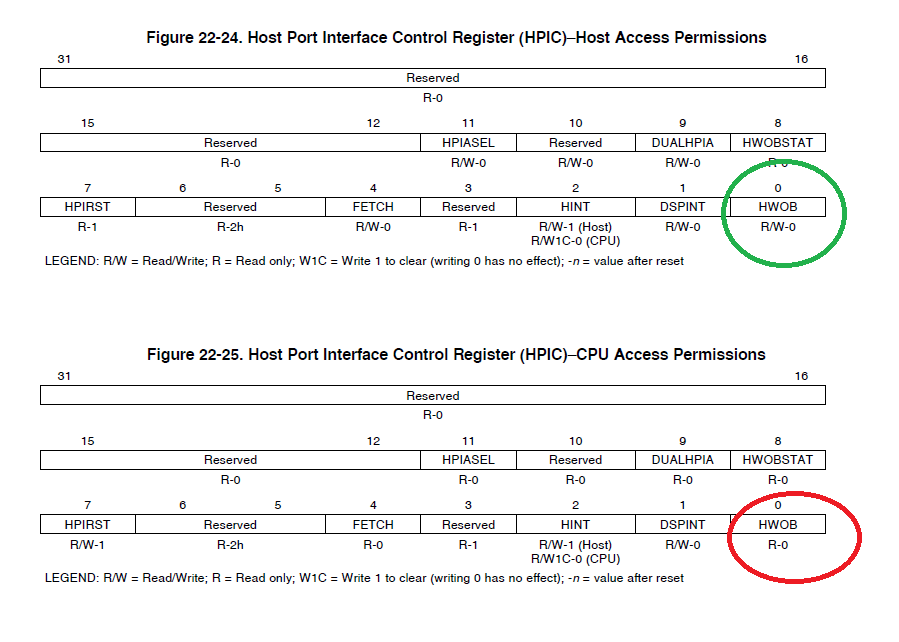All:
From SPRUH77A, 22.2.8 Initialization
1. Perform the necessary steps for pinmuxing
It looks like there are 4 pinmux registers that must be set up: PINMUX 13, PINMUX 14, PINMUX 15, and PINMUX 16 to cover all of the pins associated with HPI.
Does anyone have example code to do this?
2. Configure 2 pins in CFGCHIP1
If I am using 16-bit wide HPI address, it looks like HPIBYTEAD should be set to 0, correct?
HPIENA needs to be set to 1.
3. HPIC - when I bring up the DSP side of OMAP under Code Composer Studio (6.1.1), I can view HPIC under HPI0DSP, but I cannot change any bits. Is there something blocking me from setting HWOB for instance from the CCS Debug view?
I am sure to have more questions, but I have not seen these answered in previous discussions on HPI.



